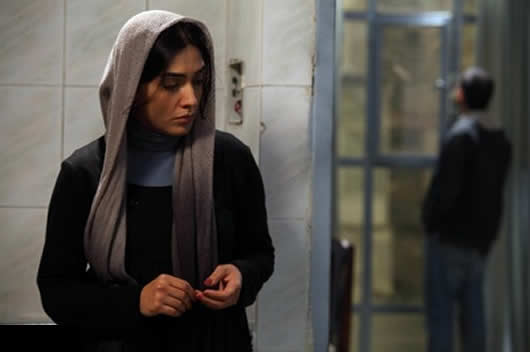 Hollywood Reporter – CANNES – Arrested together with Jafar Panahi while they were preparing a new film, Iranian director Mohammad Rasoulof has succeeded, under what the Cannes Film Festival refers to as “semi-clandestine conditions,” in completing Goodbye, a dark tale focusing on a young woman lawyer and openly attacking the blind repression of Iranian civil society. A slow-moving mood piece in which women are virtually the only actors on screen, it is a powerful statement against the political regime in art film format, of chief interest to afficionados. Still, the international wave of sympathy for Rasoulof and Panahi’s plight and general interest in first-hand information about Iran could broaden the circle of international art house audiences for this courageous and well-made work, guaranteed not to be released in its native land.
Hollywood Reporter – CANNES – Arrested together with Jafar Panahi while they were preparing a new film, Iranian director Mohammad Rasoulof has succeeded, under what the Cannes Film Festival refers to as “semi-clandestine conditions,” in completing Goodbye, a dark tale focusing on a young woman lawyer and openly attacking the blind repression of Iranian civil society. A slow-moving mood piece in which women are virtually the only actors on screen, it is a powerful statement against the political regime in art film format, of chief interest to afficionados. Still, the international wave of sympathy for Rasoulof and Panahi’s plight and general interest in first-hand information about Iran could broaden the circle of international art house audiences for this courageous and well-made work, guaranteed not to be released in its native land.
Either because the film was finished at the last minute, or to protect the film’s crew, complete technical credits were unavailable at the time of writing. Rasoulof is credited as producer, director and scriptwriter. He was not permitted to attend the film’s Cannes première in the Certain Regard section.
It is rare to see an Iranian film that so directly attacks the lack of personal freedom, going far beyond the usual hair and make-up issues that so strike Westerners. Noura (Leyla Zareh) does remove her nail polish and don a hejib before exiting the subway at Imam Khomeini station. But what comes next is much worse.
Even more than in Rasoulof’s 2009 film White Meadows, which used symbolism to talk about repression, Goodbye refuses to mince words about the frightening consequences faced by Iranian dissidents and their kin. At the same time, it is a close-up, psychologically realistic portrait of an educated professional woman grappling with an unbearable situation. Her licence to practice law has been revoked, her journalist husband has been forced to go underground, and she is considering terminating her pregnancy, which is part of a complicated scheme to leave the country. A loner used to living on her own, Noura fights all these battles alone, interacting with women doctors, secretaries, functionaries and a mother who seem distant and cold, yet occasionally exhibit a bit of unexpected female solidarity.
Men most notably appear as the police agents who confiscate her satellite TV decoder and ransack her apartment. Yet they are not really absent from the film, because they are constantly being invoked for “authorization” as Noura tries to have an amniocentesis performed, opt for an abortion, get a visa stamped on her passport and even check into a hotel. It’s an uncomfortable situation indeed for an ambitious lawyer involved with human rights activists who defend women condemned to death.
Building up a sinister atmosphere, Rasoulof shows the trap inexorably tightening around his heroine, portrayed as a portrait of anguish by the glacial Zareh. The film’s pace is too leisurely to keep tension mounting, however, and rigorous re-editing could do much to tighten the story and clear up some early plot points that get lost in translation. Camerawork, filled with disquieting oblique shadows, is elegant and atmospheric throughout.

